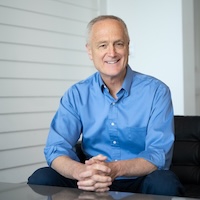Making Sense of God
If you’ve been around our GoodReads for a while, then you know we keep recommending this one. That’s because it clearly unveils Secularism’s sore spots: on the loss of meaning, the distortion of freedom, and the difficulties with identity. Making Sense of God is the one-stop shop for why Christianity offers substantive solutions to perennial human problems.
Biblical Critical Theory
Watkin believes the Bible offers a vision of reality more capacious, compelling and illuminating than any other alternative in our modern world.
The Atheist Delusions
Back in the heyday of Dawkins, Hitchens and the New Atheists, David Bentley Hart challenged the basis of their negative view of Christianity. Hart dismantles the myths surrounding the "warfare" between science and faith, and argues that Christianity played a pivotal role in shaping Western values like human dignity and freedom.
Scientism and Secularism
Scientism and Secularism by J.P. Moreland exposes the incoherence of scientism: the belief that science is the only path to reliable human knowledge. Moreland argues that scientism undermines crucial areas of human experience, like morality, ethics, and religious belief. If the New Atheists believed that science was the key to unlocking life’s greatest mysteries, Moreland cogently shows the flaws in that worldview.
Atheist Overreach: What Atheism Cannot Deliver
The New Atheists believe atheism is a suitable framework for grounding moral values, human rights, and social justice. Smith argues that while atheism can offer a personal worldview, it struggles to provide a solid foundation for collective moral commitments. He challenges the overconfidence of atheists who assert that secularism can replace religion in shaping a meaningful society, exposing its limits in the public square.
The Rise and Triumph of The Modern Self
Unhitched from traditional sources of identity like the family, religion and local community, we aren’t feeling fun and free but loss and adrift. Secularism’s outline for identity formation isn’t delivering on its promises. Carl Trueman tells modernity’s story refracted through the lenses of identity, sex, and politics. Trueman examines how each has changed, and explains the core ideas behind their transformation.
The Case Against The Sexual Revolution
Louise Perry takes aim at the sexual revolution that has left a dating crisis, a marriage crisis, and a sex drought by asking the question: “what good has this done?” The Oxford-educated writer challenges modern assumptions about sex, relationships, and freedom, advocating for a return to values that prioritize emotional connection and long-term commitment aka — marriage.
Why We Are Restless
Is there a satisfaction in this world that doesn’t fade? The ancients said no. Many moderns say yes. Benjamin and Ashley Storey explain how we came to believe that happiness is just around the corner and why that is the source of our discontentment.
The Real American Dream: A Meditation On Hope
We once hoped in God, then we hoped in the United States and now — what is left as a source of hope? ‘The narcissistic self,’ as Delbanco calls it, is the last place we can look. But when an entire society looks inward, it leads to a community characterized by post-modern melancholy.
The Uncontrollability of the World
The driving force in modern life is the desire to make the world controllable. Yet a fully moldable world is a lifeless one.According to Rosa, our society feels empty because have lost resonance: transcendent encounters with objects that elude our control. Strip the world of transcendance and you end up stripping it of meaning.
Sign up for our newsletter
Resources for the formation of wisdom on the last Saturday of each month. Try it out.



.jpeg)









